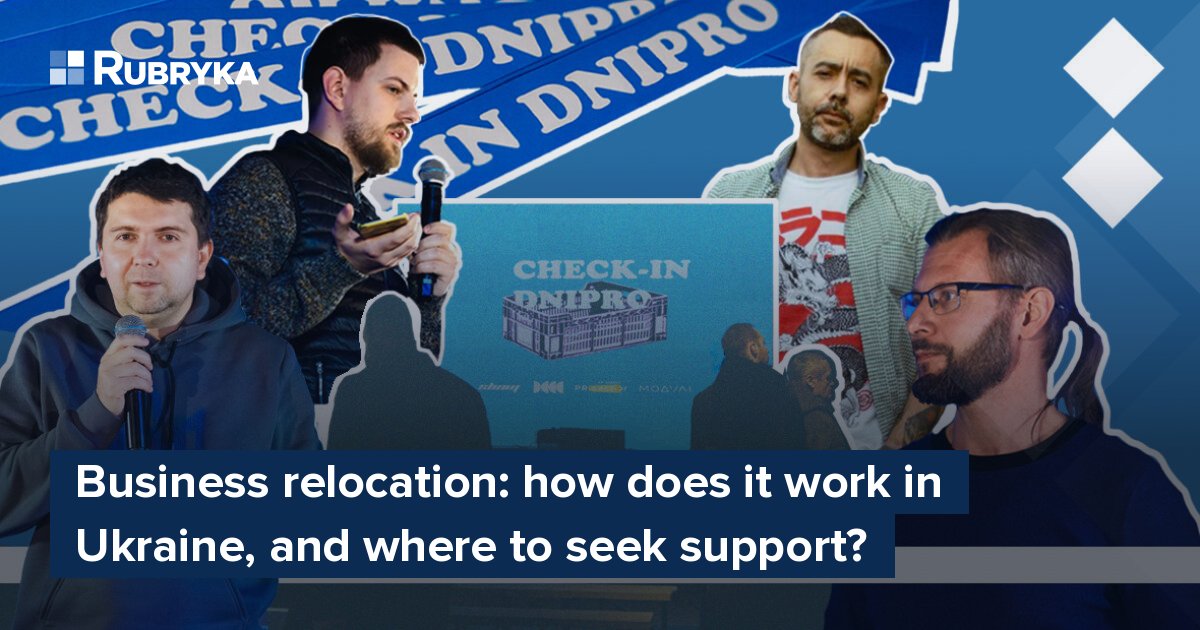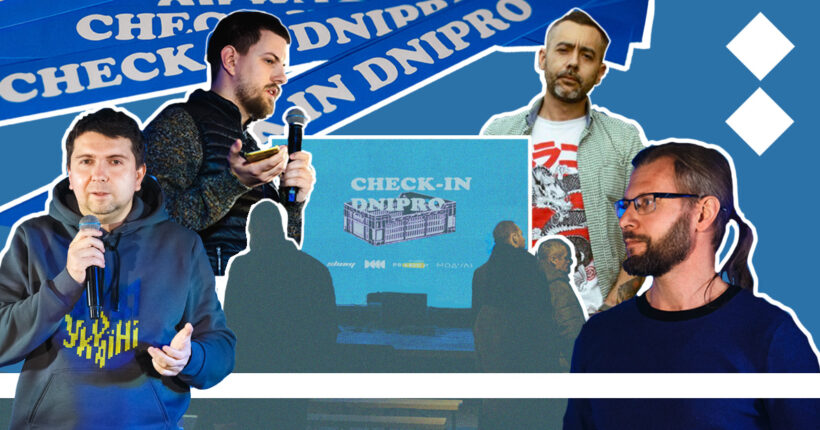
What is the problem?
Starting all over again
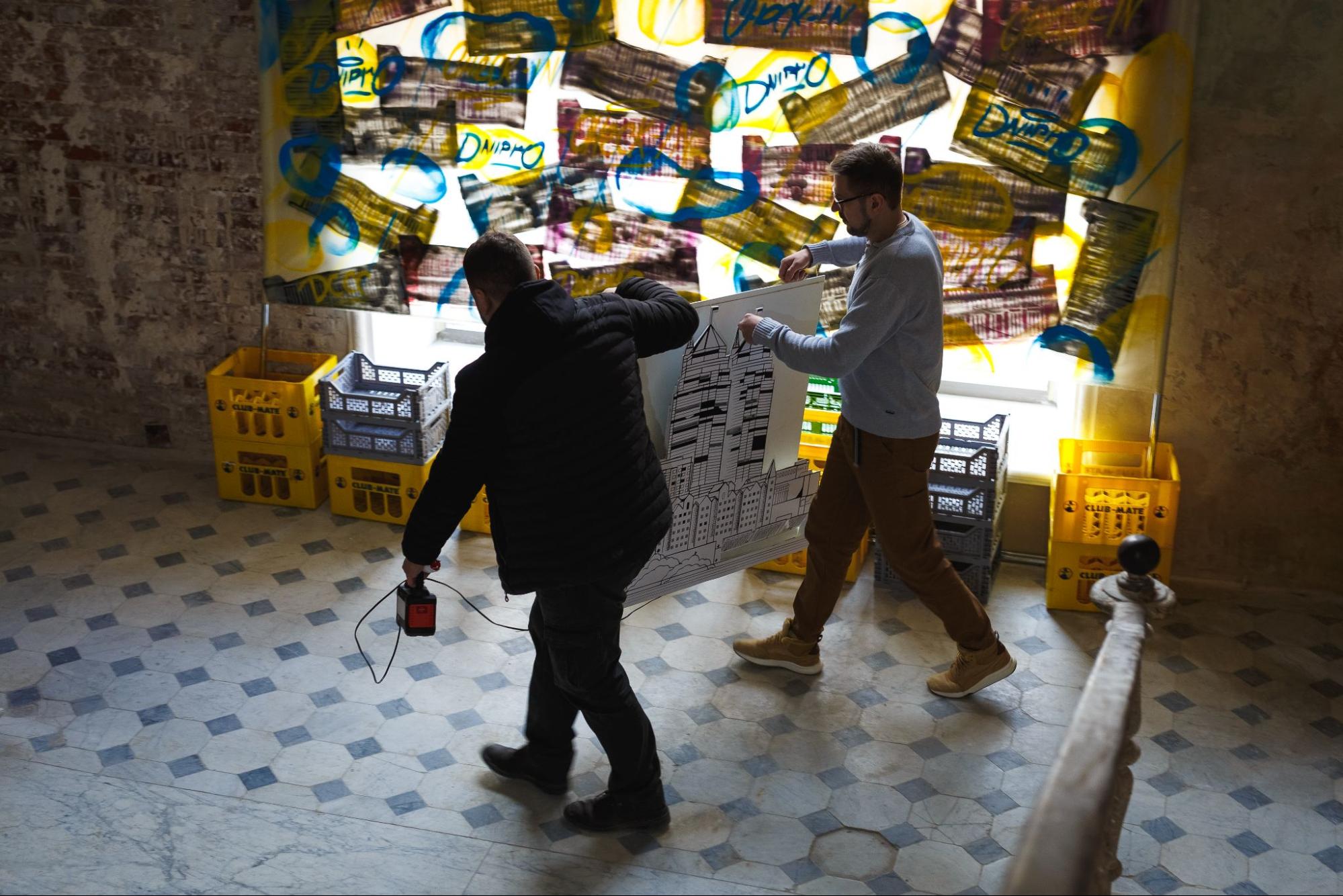
Starting your business once again from scratch in a new place is difficult for IDP entrepreneurs, so they need as much help and support as they can get.
"I lost everything twice. My business is starting out for the third time in a new place," says Dmytro Yefremov, representing Arled, the firm that relocated from the currently russian-occupied Berdiansk, Zaporizhzhia region. Dmytro has been producing LED equipment like lamps, traffic lights, and floodlights for over ten years, working in several countries. Now he is trying to get a job in Dnipro, "but on someone else's equipment and in someone else's premises."
Hanna Horbacheva has the same story. Together with her family, she opened a bakery on the central avenue in Dnipro and employed a migrant from Mariupol. Hanna is a doctor from Avdiivka, Donetsk region. Because of the Donbas war, started by russia in 2014, she was forced to move to Toretsk, another city in her native region, where she opened a family bakery. Hanna was planning to open another one in Sievierodonetsk, Luhansk region, in March when russia launched its full-scale invasion. So she ended up in Dnipro and had to start all over again.
What is the solution?
Business relocation program
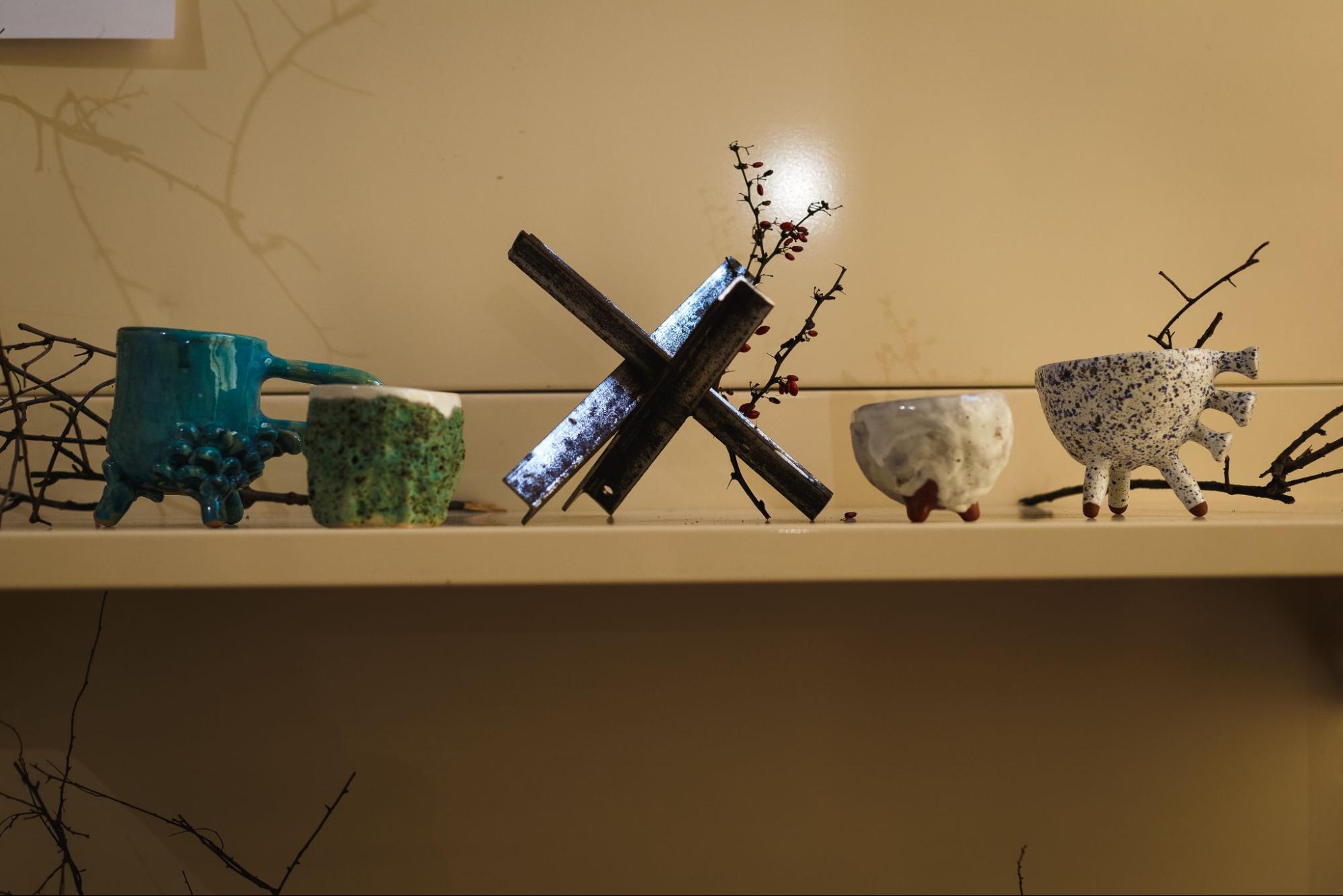
Under the Business Relocation Program, any entrepreneur from territories close to or located in a war zone can receive a state support package. Specialists from the regional administration of the business region, which hosts displaced enterprises, help find warehouses, resettle workers, help find new specialists on the spot, and explain where it is better to buy raw materials or how to register a business. The Ukrposhta, Ukraine's national post carrier, and Ukraine's Railways Ukrzaliznytsia help with transportation. Currently, enterprises are being relocated to 14 regions, mainly in the west of Ukraine.
Fifty-five enterprises, including large factories such as REM-TYAZHMASH from Sloviansk or entire universities, have already been relocated to Dnipro under the Relocation Program. Meanwhile, dozens of small entrepreneurs left the temporarily occupied territories independently, without turning to any programs for help.
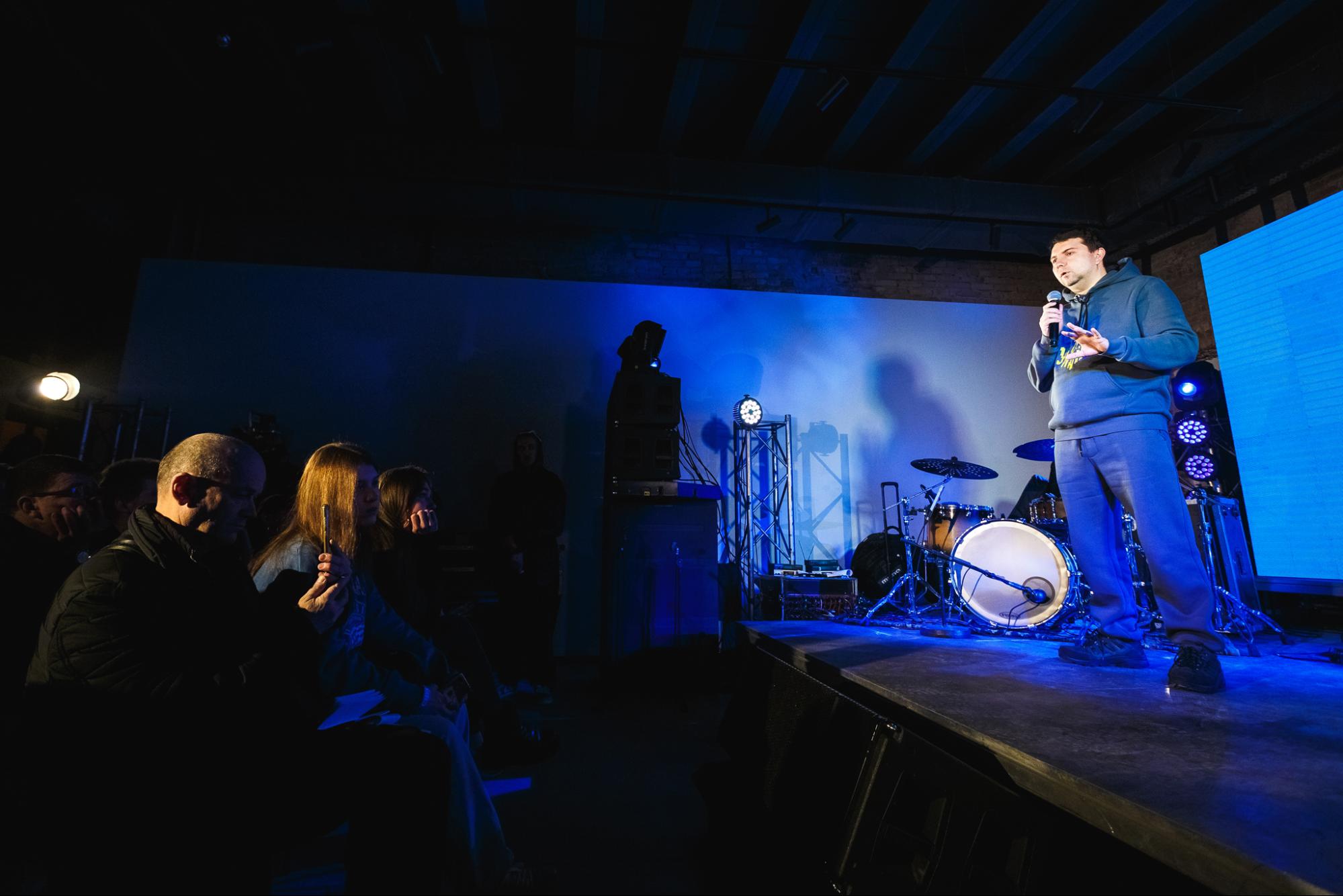
Oleksandr Sanzhara, city council secretary
"We have set close cooperation with them to resolve issues related to resettlement of workers in dormitories, search for premises and land plots for production facilities and warehouses, and helped remove equipment from dangerous cities," Oleksandr Sanzhara, Dnipro city council secretary, explains.
But not only the city helps relocated businesses. The support system goes both ways — the Dnipro budget received 4.5 million hryvnias of taxes and fees from the officially relocated enterprises in 2022, thus helping the city's needs.
We asked some of the displaced businessmen and businesswomen about how they relocated their businesses to Dnipro, why some of them were helped by the local government and some were not, and how they work amid the electricity outages and large money loans.
"Applying for aid and not working is not normal"
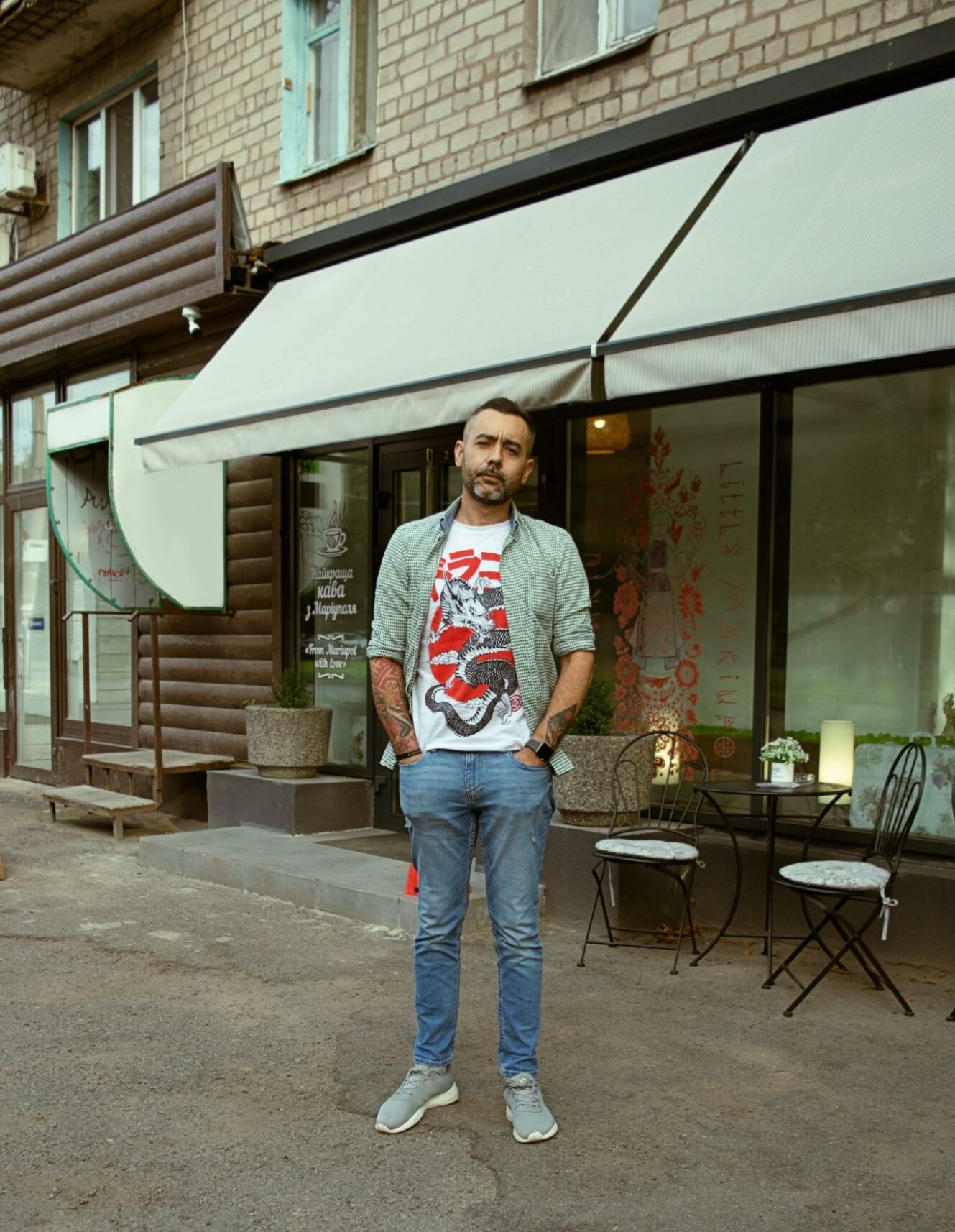
Photo courtesy of Lisa Khomenko
Three years ago, Kyrylo Dolimbaiev, the displaced resident of Mariupol, the Azov seaport and one of the most russia-destroyed cities in a year-long full-scale war, offered to decorate the church of St. Petro Mohyla and the Cathedral of the Dormition of the Holy Virgin with Petrykivka painting, a unique Ukrainian folk ornament.
Kyrylo realized his idea in one Mariupol temple, which became the only church with Petrykivka paintings worldwide. In the same city, the activist opened a free public library named after Vasyl Stus, a prominent Ukrainian poet and public figure who was killed by Soviet russia authorities for Ukrainian patriotism, organized a temple exposition of Cossack life, and conducted many language courses, bandurist performances, egg decorating, and traditional Ukrainian guardian doll making classes. In parallel with volunteering, Kyrylo worked for 17 years in a state bank.
When a full-scale war began, the library was burned by the russians, and Kyrylo's projects and aspirations were destroyed. At the beginning of the invasion, the man took his wife, children, and two pugs to Germany, then returned to Ukraine and came to Dnipro. There Kyrylo created a well-known hub Good Morning We're From Mariupol, with chaplains of the Donetsk Diocese of the Orthodox Church of Ukraine, who also evacuated to the city. With their support and thanks to international donors and individual benefactors, he opened Residence Free Space — Little Mariupol on the central avenue in Dnipro.
This ample space has a coffee shop and a library, regularly holding events, selling various products from the occupied territories, and conducting legal and psychological consultations. The critical thing for Kyrylo about Free Space — Little Mariupol is that it exclusively employs the displaced. Coffee, for example, is sold by Volodymyr Likhachev, who owns several coffee shops and stores in Mariupol. A lawyer in residence is from Volnovakha, another town entirely destroyed by russian shelling.
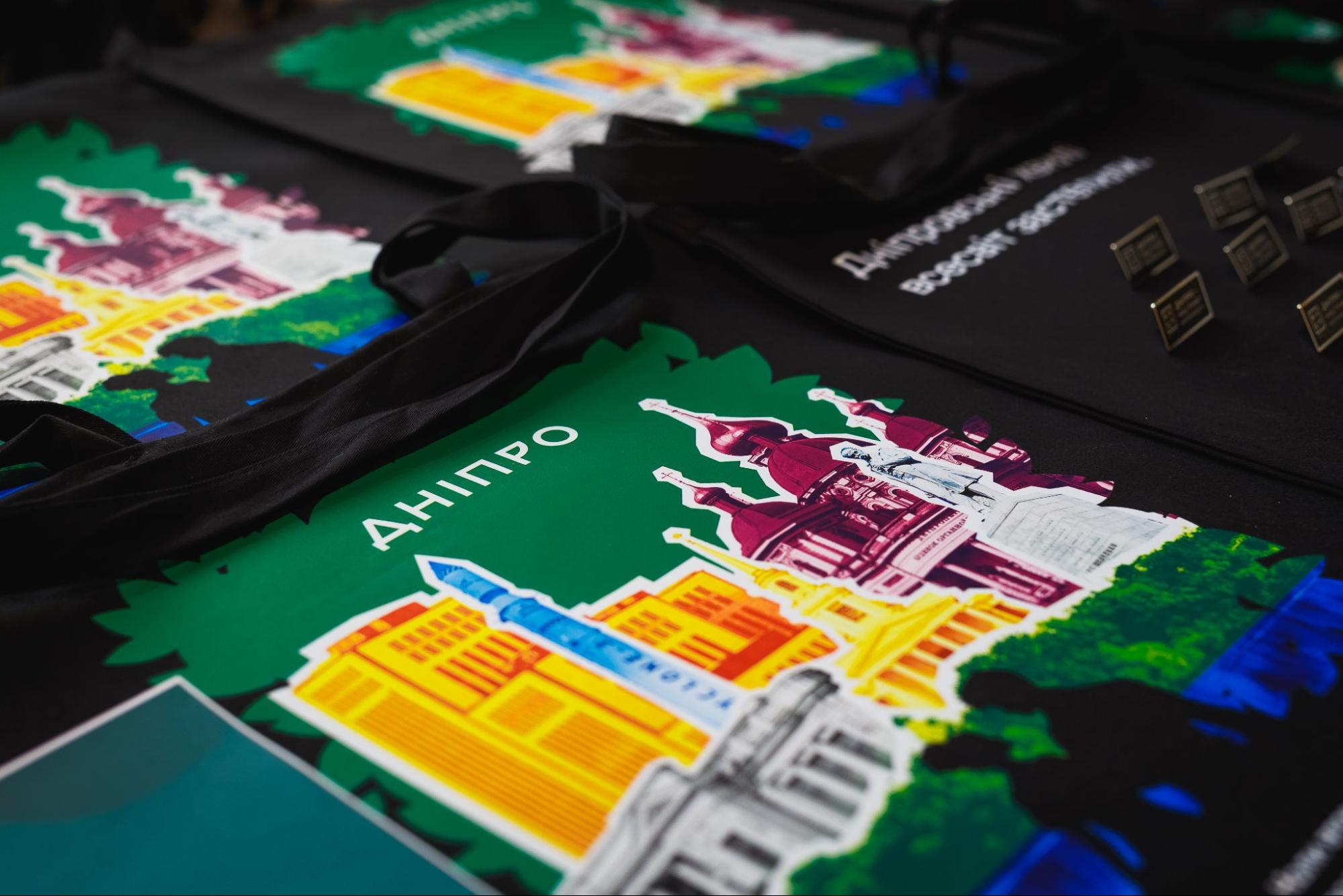
"We help relocated businesses to get started in Dnipro. These same businesses help us pay rent and utility bills for the premises," Kyrylo Dolimbaiev explains, adding the primary financial support comes from USAID and the UN.
Next to the products of displaced entrepreneurs, the residence also sells what is produced by the people of Dnipro. Kyrylo and Volodymyr Likhachev teach the locals about pending coffee or cocoa for our defenders. The men brought this tradition from their native Mariupol.
Next to the residence, Kyrylo rented other premises for the humanitarian hub to provide essential aid to IDPs: food, medicine, and clothes. "Constantly applying for humanitarian aid and not working is not normal," says Kyrylo. "First, other migrants need more help. Second, you must pay taxes, as our taxes now subsidize the army."
Kyrylo believes now is a window of opportunity for IDPs. "Many residents of Dnipro have left; some abroad, some to other cities," the activist says. "IDPs can start their own businesses without much money. The major thing is not to give up and work for victory. The military protects, volunteers help, and cultural figures promote culture. Each of the forty million Ukrainians needs to do something."
"It's a sin to give up. It's a sin not to fight"
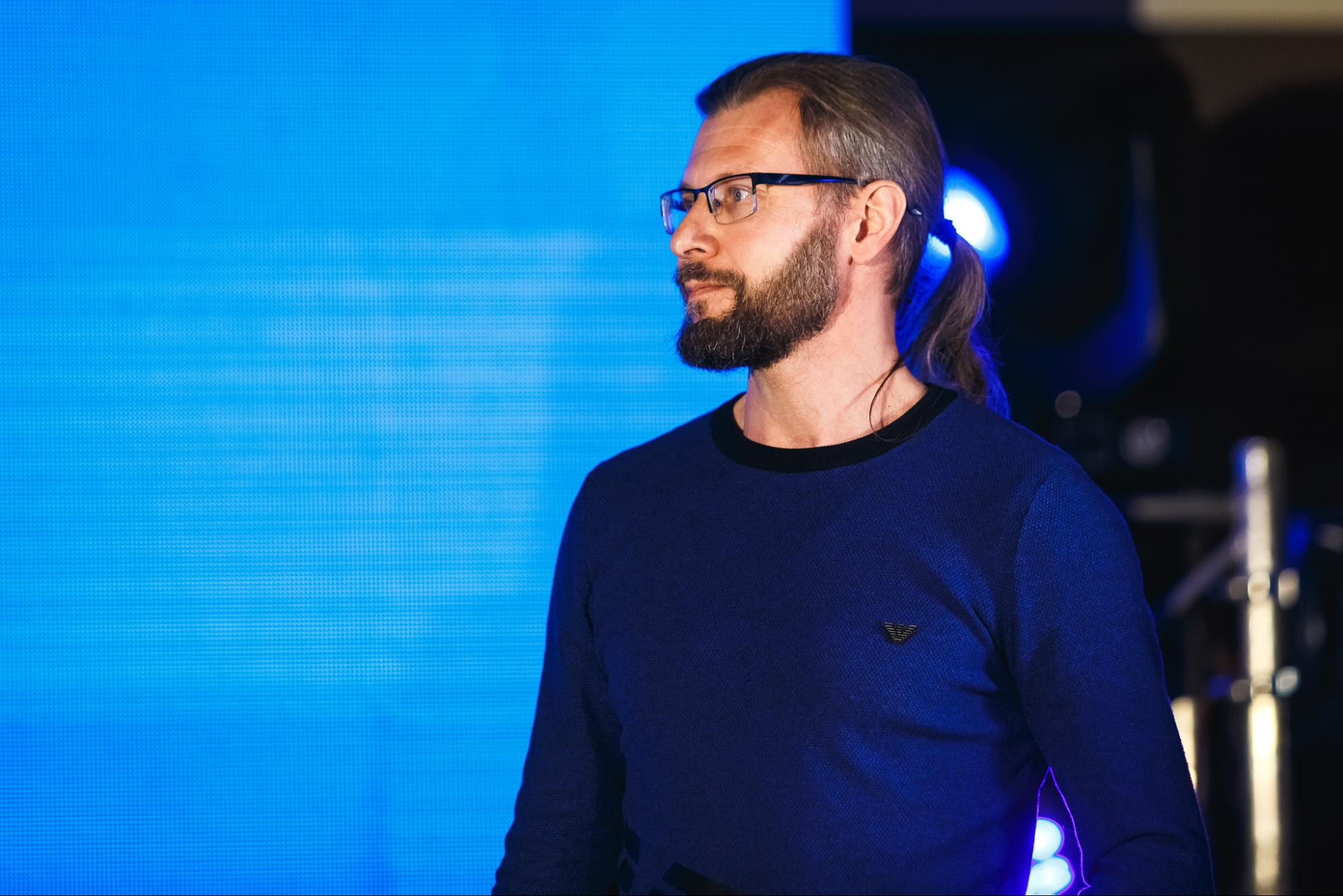
Dmytro Kosylkin from Lysychansk, Luhansk region, which is temporarily occupied by russian forces, is an owner of the Ukrainian children's clothing brand Be Easy. The man decided to create outerwear together with his wife when he could not find a good jacket for his son.
Currently, his team sews, in addition to children's clothes, military gear, for example, ponchos made of technical fabric that protect Ukrainian defenders from the rain, sleeping bags, and winter clothes.
"Three years ago, we put production on the rails, producing one jacket not in 30, but in 10-12 minutes," says Dmytro. "We had innovative production, used laser plotter to cut fabric, pocket machine, automatic machines for the production of jackets. By the way, we were also grantees of various international donors."
The family moved to Dnipro to friend volunteers who helped with housing and premises for production. Now Dmytro is looking for another space with two people remaining from his old team. The man also employed several local people.
The entrepreneur says that the "banking system" prevents the team from working normally in addition to constant power outages. "We had a certain credit line. All the mortgaged property under the loan remained in Lysychansk. The bank is trying to squeeze out everything it can. We use the earned funds to repay the loan."
As for state support, Dmytro used the business relocation program. Thanks to this, for example, Ukrposhta compensated 80% of the costs of transporting Be Easy products. Besides, when the entrepreneurs apply, they are offered premises more or less adapted to production processes at the level of various cities' administrations. "I feel a lot of support from the Dnipro local and regional councils. We are in touch, and they are helping," Dmytro shared. For example, the other day, Dmytro's team met with the city council deputies and industrial enterprises, ready to provide them with free work premises. "We have no right to give up. It is a sin to give up. It is a sin not to fight. Our work is not as difficult as the work of our defenders. We support the country's domestic economy with our work, and the money stays in Ukraine," the man concludes.
"You understand how important your hometown is"
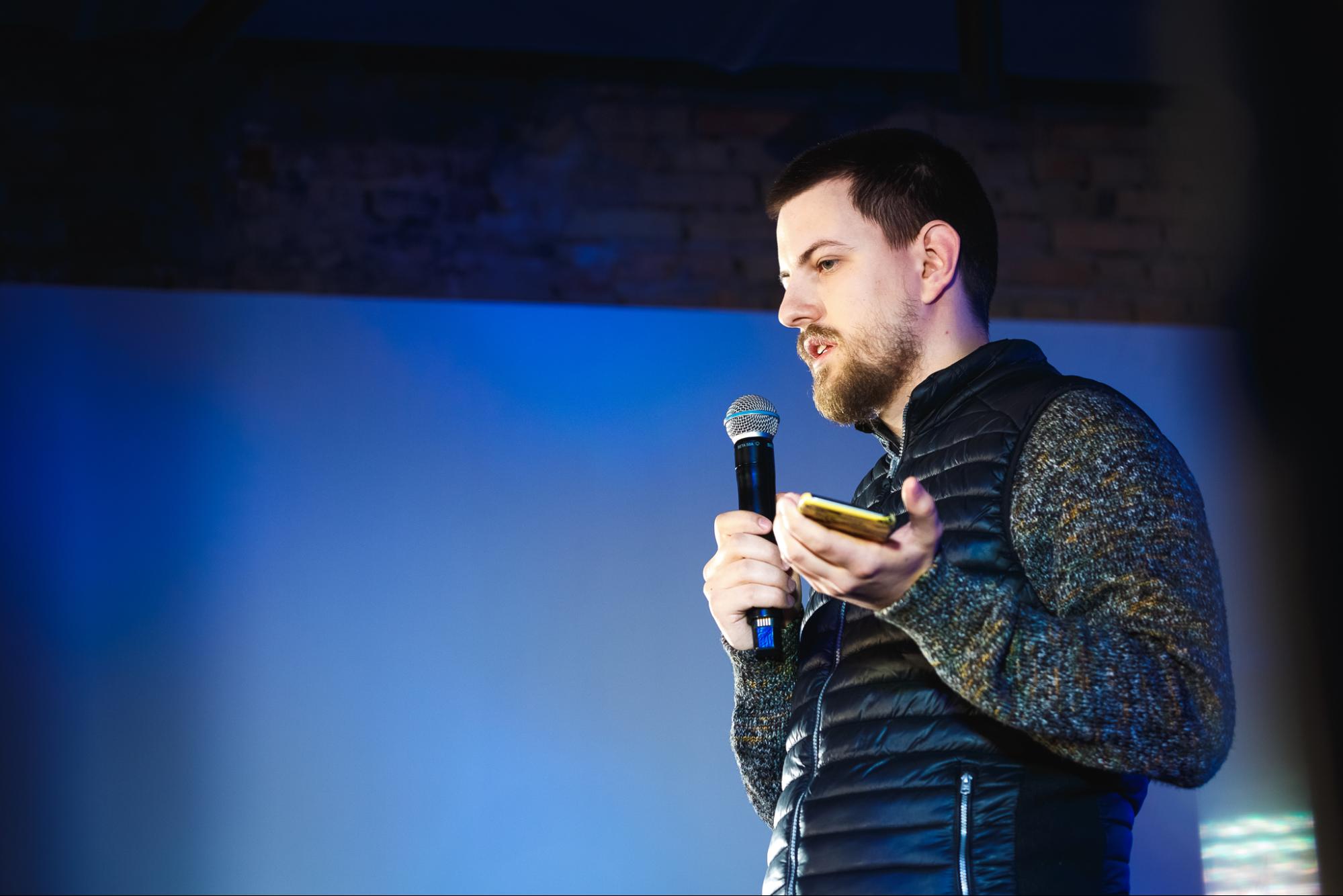
Mykyta Leutskyi, 24, and he is from Mariupol. He stayed in the city for almost a month after it was occupied by the russian. The man had two venues: Izba Chytalnia Bar and Jager Point Bar. You can still find beautiful photos of these places on Google, but the locations are gone, destroyed by russian forces.
"Izba was not just a place… We spent our entire youth there. We built it, learning life and business there. But there is no stone left of this place," says Mykyta. Through this establishment, he promoted the philosophy of "spiritual and intellectual bars." In the Izba Bar, you could listen to live music or poems by local poets.
When full-scale war broke out, people from nearby buildings started coming to the bar. Not only employees but also other locals found refuge in their bar. Mothers with their children were sitting on the sofas, and the grandparents of one of the employees were sitting on two pushed benches. Somewhere was a woman who came from Poland to take her seven-year-old son from Mariupol. Mykyta remembered these people well. When he was leaving Mariupol, his venues were no longer there.
After evacuation from the bombarded city, the man ended up in Dnipro with his family and his Mariupol team, more by accident than on purpose. On one of the first days in Dnipro, Mykyta went to have lunch at the local restaurant First Wave (formerly Veterano Pizza, a veteran-founded business). First Wave fed the displaced people for free.
Mykyta began to help the restaurant, and at some point, its owner, now a soldier of Ukraine's Armed Forces, asked the man about his life. Then he and his partner literally gave Mykyta the restaurants, saying: "Get busy in this place (…) Keep up the movement here."
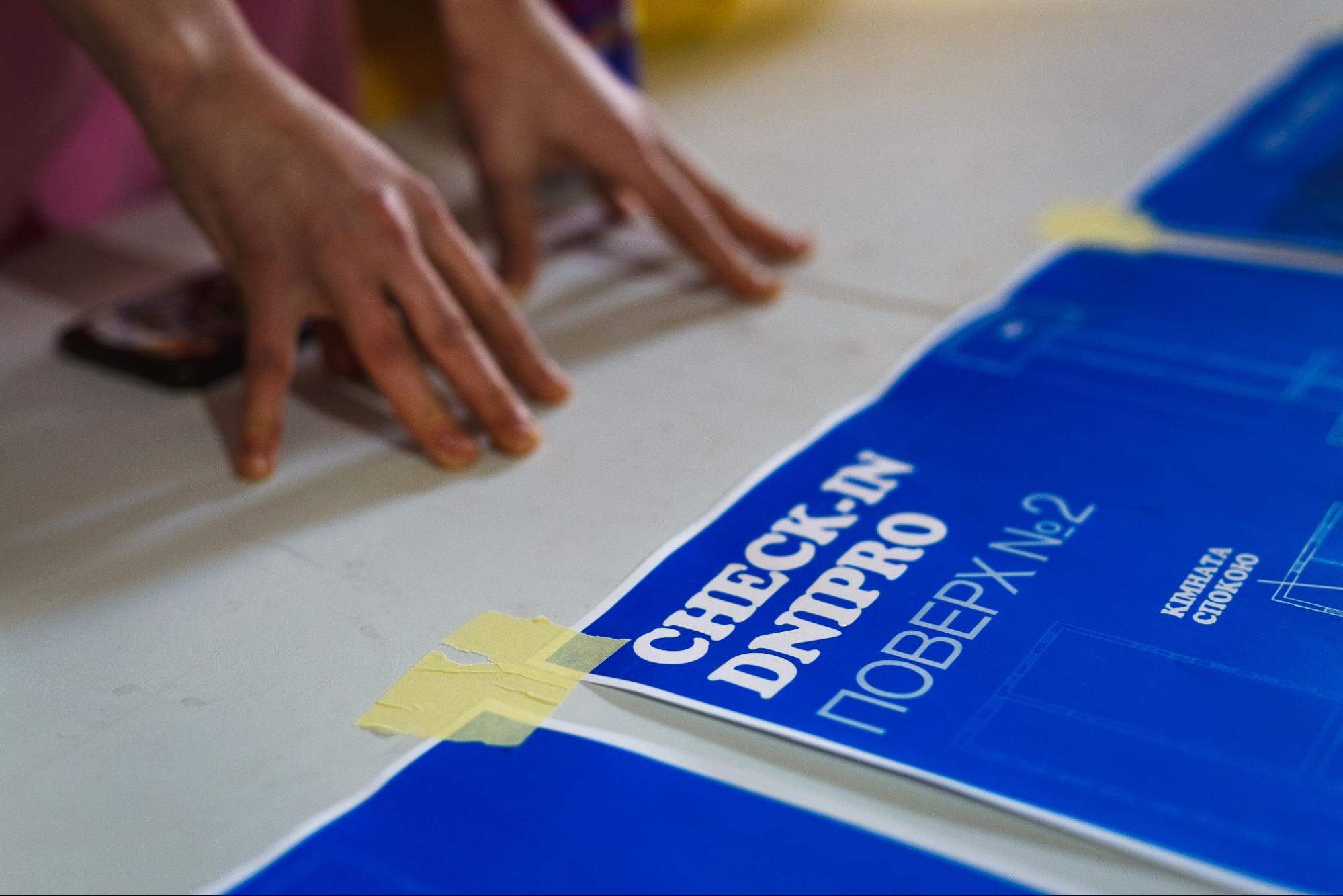
Mykyta agreed to the offer. "I understood this might be the only chance for my new life and my team's life."
When Mariupol IDPs took over the Dnipro venue, they continued to feed the displaced people with the help of volunteers. Now the money for free lunches has run out, but Mykyta received a grant to hold various cultural events at First Wave: movie nights, quizzes, and stand-ups. Volunteers and donors help to organize. Thanks to them, the team can contribute to the Ukrainian army. Locals help Mykyta raise money for a generator.
The man still does not feel that First Wave is his. He is getting used to the new place and Dnipro, even though it has been almost a year since he moved. Recently, Mykyta has been thinking more often that the most valuable thing we have in life is our hometown and the memories it gave us.
Even more helpful solutions!
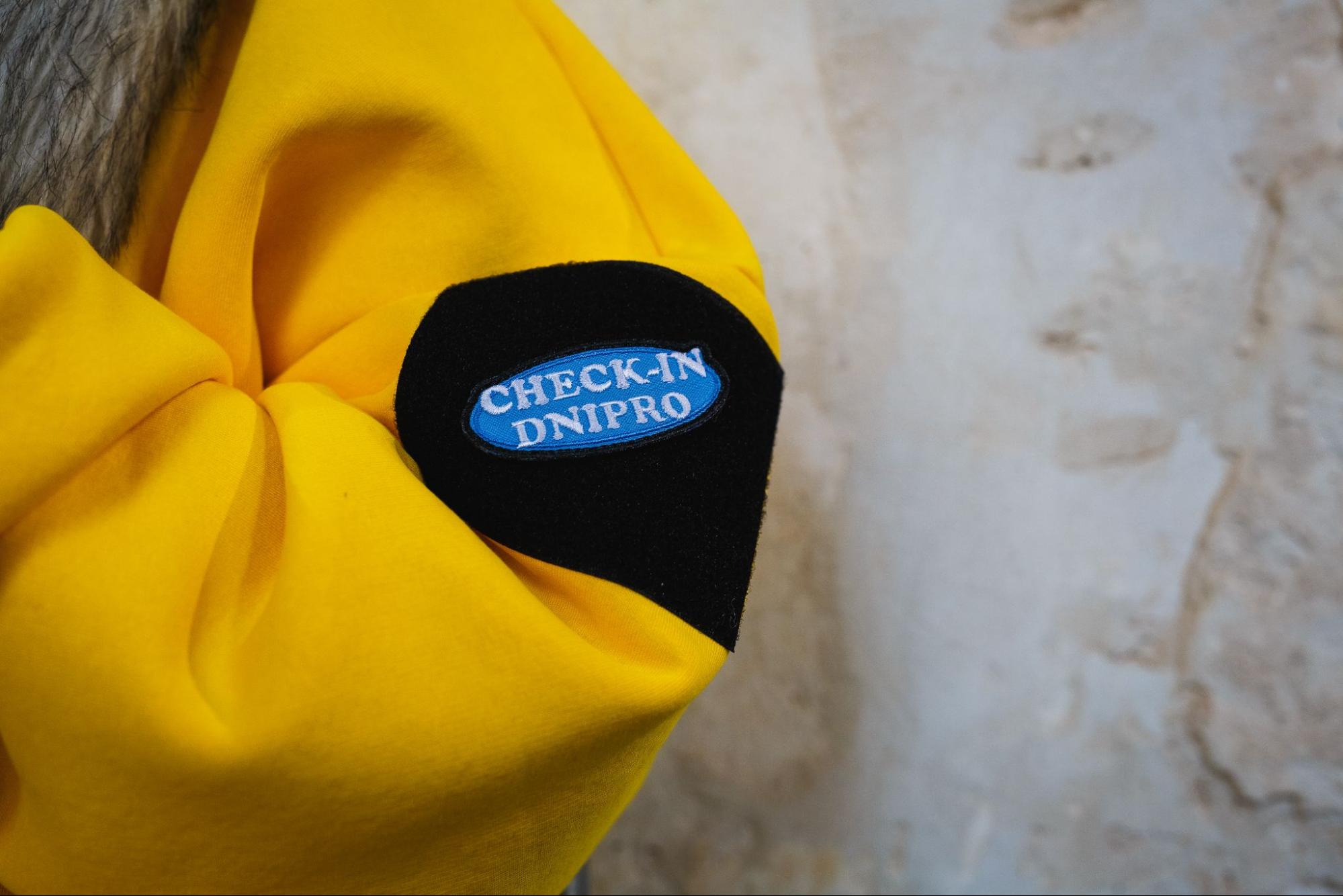
To apply for the Relocation Program, fill out an application for participation at the link. In the form, you must indicate the following:
- the enterprise registry code,
- production address,
- the needs for the premises (volumes of use of electricity, gas, water),
- number of employees and equipment,
- method of transportation,
- the approximate term of equipment installation at the new location, etc.
Priority is given to the businesses that can independently ensure the dismantling and transportation of their capacities to the nearest railway station. When filling out the application, provide as much detail as possible about your company. Next, this application is transferred to specialists at one of the host regional administrations, who will clarify the information with the entrepreneur. After the application is sent to the logisticians, your business begins a new life.
Photo courtesy of Yurii Stefaniak


